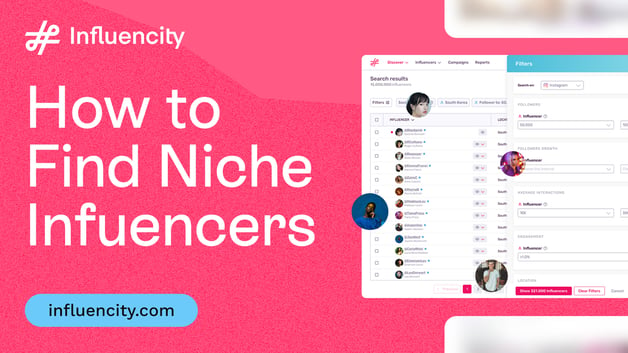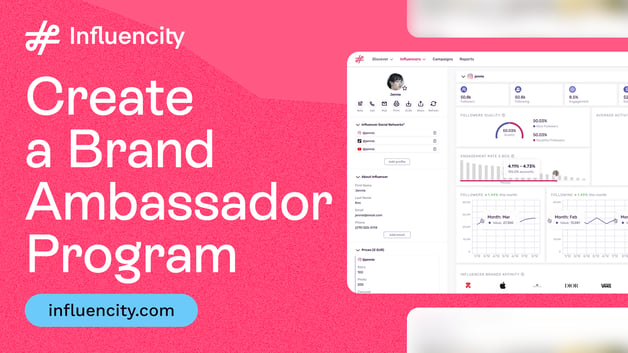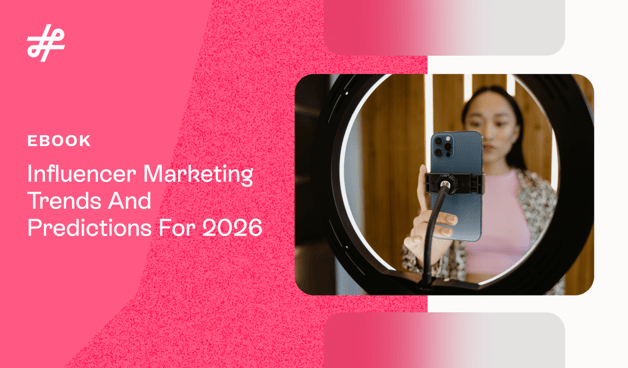AI Influencers: How Virtual Personalities are Shaping the Future of Marketing
The emergence of AI influencers marks a significant shift in how brands connect with audiences. Traditional influencers, who have long been the face of social media campaigns, are now sharing the stage with virtual personalities powered by artificial intelligence. These AI-driven entities are not just a passing trend; they are revolutionizing the creator’s economy, offering unique opportunities for businesses to engage with consumers in innovative ways.
In today’s post, we will explore everything you need to know about AI influencers, including what they are, how they are created, their impact on influencer marketing, and the most popular AI influencers currently dominating the space.
In this article you can expect to find...
Benefits and Disadvantages of Including an AI Influencer in Your Campaigns
The Rise of AI Influencers in Marketing
Impact on Influencer Marketing
Top AI Influencers to Look Out For
Highlights of the post:
- Learn how AI influencers are reshaping how brands connect with their audiences.
- Get to know how despite being artificial, they engage convincingly and produce personalized content.
- Discover some of their benefits; they offer consistency, global reach, and precise brand alignment.
- Uncover the most common questions and the top AI influencers to look out for.
What Are AI Influencers?
AI influencers are computer-generated characters that use artificial intelligence (AI) to promote products and engage with audiences on social media. These virtual influencers are designed to simulate human behavior, appearance, and even emotional responses. Unlike traditional influencers, who are real people with social media followings, AI influencers are entirely fabricated characters. However, their ability to interact with followers, create content, and influence purchasing decisions is very real.
Bringing AI influencers to life is all about blending technology with creativity. Developers use advanced deep-learning models to help these virtual personalities mimic human behaviors, such as facial expressions, body language, and natural conversation styles. At the same time, graphic designers work on their appearance, making sure they look relatable and appealing to their audience. Once they are ready, these digital characters step onto social media platforms, interacting with followers, creating content, and engaging just like a real person. It is a fascinating mix of innovation and artistry that makes them feel surprisingly human.
Key Features of AI Influencers
- Artificially created personas. AI influencers are completely digital creations, designed using advanced algorithms, machine learning, and AI technologies. They are built to mimic human behaviors, characteristics, and even emotional responses, despite not existing in the physical world.
- Realistic interactions. Despite being artificial, AI influencers can engage with audiences in a lifelike way. They respond to comments, join conversations, and generate personalized content, making their interactions feel authentic and relatable.
- Content creation. AI influencers are programmed to produce high-quality content tailored to their audience’s interests. This includes photos, videos, and blog posts, all designed to maintain their unique persona and keep followers engaged.
- Influence and marketing power. Just like human influencers, AI influencers can shape purchasing decisions. They promote products, endorse brands, and participate in marketing campaigns, often achieving high levels of engagement due to their novelty and unique appeal.
- Customization and adaptability. AI influencers can be customized to fit the specific needs of brands or audiences. Developers can adjust their personality traits, appearance, and content strategy based on data analytics and audience feedback, ensuring they remain relevant and effective.
- Scalability. Unlike human influencers, AI influencers can operate 24/7 and across multiple platforms and languages. This enables them to reach global audiences without the physical and logistical limits of real-world influencers.
How AI Influencers are Created and Operate
Building an AI influencer takes a mix of creativity and advanced tech. Here’s how they’re made and how they work behind the scenes to engage with their audience.
- Designing the persona. The process starts with defining the influencer’s personality, appearance, and backstory. Developers use deep learning algorithms to program human-like traits, including facial expressions, speech patterns, and emotional responses. Graphic designers create their visual look to ensure they are appealing and relatable.
- Programming realistic interactions. AI influencers are equipped with natural language processing tools that allow them to communicate with followers. They can respond to comments, hold conversations, and create custom replies, making their interactions feel genuine.
- Creating engaging content. AI influencers are programmed to produce content that resonates with their audience. This can include high-quality photos, videos, and written posts, all carefully aligned with their persona and brand strategy.
- Launching on social media. Once ready, AI influencers are deployed on platforms like Instagram, TikTok, or YouTube. They interact with followers, share content, and participate in campaigns just like human influencers.
- Ongoing optimization. Developers monitor how audiences respond to the AI influencer. Based on engagement and feedback, they make adjustments to improve personality traits, content style, or interaction strategies, ensuring the influencer remains effective and appealing.
Benefits and Disadvantages of Including an AI Influencer in Your Campaigns
AI influencers bring several unique advantages to the table that can make them valuable assets for brands and marketers. However, their integration into marketing campaigns is not without its complexities and challenges.
Let’s explore the pros and cons of including AI influencers in your marketing campaign.
Pros
- Consistency and control. AI influencers offer brands a level of consistency that is hard to achieve with human influencers. They can be fully controlled by the brand, ensuring that all messaging aligns perfectly with the brand's values and objectives. This eliminates the risk of unexpected behavior or controversy that can arise with human influencers.
- Cost-effectiveness. Over time, AI influencers can be more cost-effective than human influencers. While the initial investment in development might be high, AI influencers do not require ongoing payments, travel expenses, or other logistical costs associated with human influencers. They can also generate content at scale, reducing the need for extensive content creation teams.
- Scalability and global reach. AI influencers can engage with a global audience around the clock without limitations. They can be programmed to speak multiple languages, cater to different cultural contexts, and operate on various platforms simultaneously. This scalability allows brands to reach a diverse audience efficiently.
- Innovation and experimentation. AI influencers allow brands to explore new forms of storytelling and content creation that might be challenging or impossible for human influencers. For instance, they can be animated with special effects, engaging audiences in more creative ways. This makes AI influencers a valuable asset for brands looking to push the boundaries of digital marketing and try out experimental campaigns.
- Global reach and cultural adaptability. AI influencers can be easily programmed to communicate in multiple languages and tailor their cultural references to specific audiences. This adaptability makes them particularly useful for global campaigns, where they can engage with diverse audiences across different regions without the logistical challenges of working with multiple human influencers.
Cons
- Lack of authenticity. One of the main drawbacks of using AI influencers is the potential lack of authenticity. Consumers are increasingly savvy and may be able to detect when interactions are not genuinely human. This can lead to a disconnect between the influencer and the audience, potentially harming the brand’s reputation.
- Limited emotional connection. While AI influencers can simulate human behavior, they lack the true emotional depth that real influencers possess. This can make it difficult to form genuine, lasting connections with audiences, which is often a key component of successful influencer marketing.
- High initial costs. While AI influencers can be cost-effective in the long run, the initial investment required to create a sophisticated and effective AI influencer can be substantial. This includes costs related to the development, design, and programming of the AI, as well as ongoing maintenance to keep the AI influencer up-to-date and relevant.
- Ethical and transparency issues. The use of AI influencers can raise ethical concerns, particularly around transparency. Audiences might feel deceived if they are not aware that an influencer is AI-generated. Additionally, there are concerns about the potential misuse of data and the ethical implications of AI-driven persuasion tactics.
- Data and privacy concerns. The use of AI influencers can raise significant privacy issues, especially as they often rely on collecting and analyzing large amounts of user data to personalize interactions. This reliance on data can lead to potential breaches of privacy or misuse of information, which could harm a brand's reputation if not handled with care.
The Rise of AI Influencers in Marketing
The rise of AI influencers is closely linked to the growing demand for personalized and targeted marketing. As consumers become more discerning and tech-savvy, traditional advertising methods are losing their effectiveness. Brands are now seeking innovative ways to capture the attention of their audiences, and AI influencers provide a fresh and engaging solution.
One of the key advantages of AI influencers is their ability to operate 24/7 without the limitations faced by human influencers. They don’t require breaks, can work across multiple time zones simultaneously, and are immune to controversies or scandals that often affect real-life social media influencers. They could even expand into professional networks like LinkedIn, where they might serve as virtual professionals and thought leaders. This makes AI influencers a valuable asset for brands looking to maintain a consistent and positive presence online.
Moreover, AI influencers can be programmed to align perfectly with a brand’s identity and values. This level of control ensures that the messaging remains on-brand at all times, reducing the risk of off-message content that might occur with human influencers. As a result, brands can create more cohesive and effective marketing strategies that resonate with their target audiences.

Impact on Influencer Marketing
The introduction of AI influencers is transforming the traditional influencer marketing industry. Brands are now able to reach new demographics and engage with consumers in ways that were previously unimaginable. For instance, AI influencers can be customized to appeal to specific niches, making them ideal for targeted campaigns.
One area where AI influencers are making a significant impact is in the realm of affiliate marketing programs. These programs, which reward influencers for driving sales through their content, are now leveraging AI influencers to reach broader audiences than those reached by micro or nano-influencers. Since AI influencers can create personalized content at scale, they are particularly effective in promoting affiliate products to niche markets.
Furthermore, AI influencers are not restricted by physical appearances or backgrounds, allowing brands to create diverse representations that resonate with a global audience. This diversity is crucial in today’s marketing landscape, where consumers are increasingly seeking authentic and inclusive representations in the content they consume.
The use of AI influencers also allows for more precise measurement of campaign effectiveness. Brands can analyze the performance of AI-driven campaigns with greater accuracy, thanks to the data-driven nature of these virtual personalities. This ability to track and optimize campaigns in real time is a significant advantage for marketers looking to maximize their return on investment.
FAQs About AI Influencers
AI influencers are a new and exciting part of the social media world, but they also raise a lot of questions. How do they work? Are they ethical? What makes them different from human influencers? Below, we’ve answered some of the most common questions to help you understand this growing trend.
How do AI influencers interact with their followers?
AI influencers use advanced natural language processing (NLP) algorithms to interact with their followers. These technologies enable them to respond to comments, answer questions, and even engage in personalized conversations. Their interactions often feel authentic because they are programmed to mimic human communication styles and behaviors, creating a sense of connection with their audience.
Are AI influencers ethical?
This depends on how they are used. It’s important for people to know they are interacting with an AI and not a real person. There are also concerns about privacy and how data is handled. Ethical AI influencers are upfront about who they are and follow advertising rules to make sure everything is clear and fair.
What are the benefits of using AI influencers?
AI influencers have many advantages. They can work all day, every day, across different platforms and languages. They don’t face the same risks as human influencers, like bad publicity or burnout. Brands can also customize them to fit specific campaigns or audiences, making them very flexible and efficient.
Will AI influencers replace human influencers?
AI influencers are unlikely to fully replace humans. While they can mimic human behavior, they lack real emotions and personal experiences. Instead, they are more likely to work alongside human influencers, offering brands creative and unique ways to connect with audiences.
How are AI influencers different from VR avatars?
AI influencers and VR avatars are not the same. AI influencers exist on platforms like Instagram, TikTok, and YouTube, interacting with real people in these digital spaces. VR avatars, on the other hand, are usually part of virtual reality environments like video games or immersive worlds.
Are there rules for AI influencers?
Right now, there aren’t many specific rules for AI influencers. However, most countries require clear labels for paid ads, and that applies to both human and AI influencers. As they become more popular, new rules may be created to ensure they are used responsibly.
How do AI influencers change marketing?
AI influencers bring fresh ideas to marketing. They attract attention because they are new and different, and their customizable features make it easier for brands to connect with specific groups of people. They’re a great way to stand out in a crowded market.
What industries use AI influencers the most?
Industries like fashion, beauty, and technology often use AI influencers because they fit well with visually creative and modern content. E-commerce brands also use them to showcase products, and some even use AI influencers to promote sustainability and social causes.
How much does it cost to create an AI influencer?
The cost depends on how complex the AI influencer is. Simpler ones can cost tens of thousands of dollars to develop, while more advanced ones can cost hundreds of thousands. On top of that, there are costs for creating content and running campaigns.
Top AI Influencers to Look Out For
You might be surprised to hear that there are already several AI influencers making a name for themselves online, amassing large followings and collaborating with major brands. Here are some of the most popular AI influencers currently shaping the future of marketing.
Lil Miquela (@lilmiquela)
Lil Miquela, also known as Miquela Sousa, is one of the most well-known AI influencers right now. She was created by the Los Angeles-based startup Brud and has over 2.5 million followers on Instagram. Miquela has worked with high-profile brands like Calvin Klein, Prada, and Samsung. Her lifelike appearance and relatable personality have made her a favorite among fashion and tech enthusiasts.
Lu do Magalu (@magazineluiza)
Lu do Magalu is one of the most successful AI influencers in Brazil, created by the retail giant Magazine Luiza (Magalu). With millions of followers on Instagram and YouTube, Lu do Magalu is a digital personality who engages with audiences by sharing product reviews, lifestyle tips, and promotional content for the Magalu brand. Her relatable and friendly persona has made her a powerful tool for brand communication, blending entertainment with e-commerce in a way that resonates with a broad consumer base.
Aitana Lopez (@fit_aitana)
Aitana Lopez is a rising AI influencer known for her vibrant and fashionable presence on social media. Designed to appeal to a younger, trend-conscious audience, Aitana collaborates with various fashion and beauty brands, offering a fresh and youthful perspective. Her virtual personality is characterized by a modern, chic style, and she engages with her followers through a mix of lifestyle content, product endorsements, and interactive posts, making her a dynamic figure in the AI influencer space.
Shudu (@shudu.gram)
Shudu is the world’s first digital supermodel, created by British photographer Cameron-James Wilson. With her stunningly realistic features, Shudu has captivated the fashion industry, collaborating with brands such as Fenty Beauty by Rihanna. Shudu represents a new era of diversity and inclusivity in fashion, challenging traditional beauty standards.
Bee Influencer (@bee_nfluencer)
Bee Influencer is a unique AI influencer with a mission to raise awareness about environmental issues, particularly the importance of bees in our ecosystem. With a cute, bee-inspired avatar, Bee Influencer uses social media to promote sustainability and eco-friendly products. This AI influencer has garnered attention not just for its adorable and distinct look, but also for its impactful messaging, blending digital marketing with environmental advocacy in a way that appeals to both consumers and brands committed to sustainability.
Imma (@imma.gram)
Imma is a virtual model from Japan, instantly recognizable by her stylish pink bob and cutting-edge fashion sense. Created by the modeling agency Aww Inc., Imma has become a cultural icon in the fashion and tech industries. She’s collaborated with global brands like IKEA and Gucci and even appeared at Paris Fashion Week. With her distinct look and trendsetting appeal, Imma has amassed a loyal following of approximately 393,000 on Instagram, making her a prominent figure in the AI influencer world.
Kyra (@kyraonig)
Kyra is India’s first virtual influencer and represents a 22-year-old model from Mumbai. Known for her fashion-forward style and aspirational lifestyle content, Kyra has quickly risen to fame on Instagram. She shares posts about travel, fashion, and wellness, connecting deeply with her audience. Kyra has partnered with well-known brands like Amazon Prime Video and boAt, using her relatable personality and visually stunning posts to engage followers. As of December 2024, she has around 255,000 followers and continues to grow her influence.
Milla Sofia (@millasofia_fin)
Finally, Milla Sofia is a Finnish AI influencer celebrated for her elegant fashion and sophisticated content. She has carved out a niche in the AI space by focusing on luxury and lifestyle topics, captivating her audience with a blend of grace and modernity. Milla collaborates with a range of high-end brands, showcasing their products with a unique digital flair. With approximately 206,000 Instagram followers, Milla Sofia continues to gain traction as a standout figure in the virtual influencer landscape.
Tags:



![EBOOK Top 15 legal Questions Brands & Agencies Have About Working with Influencers [Answered by Legal Experts] Navigate the legal landscape of influencer marketing with our free eBook. Discover key strategies to ensure compliance and protect your brand.](https://no-cache.hubspot.com/cta/default/3449185/interactive-179420471352.png)



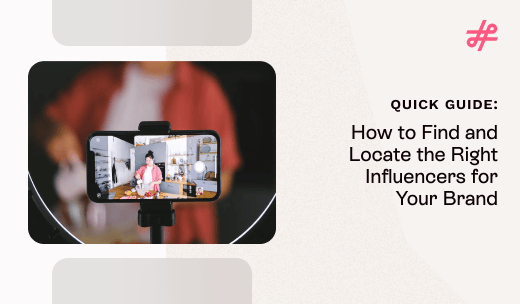


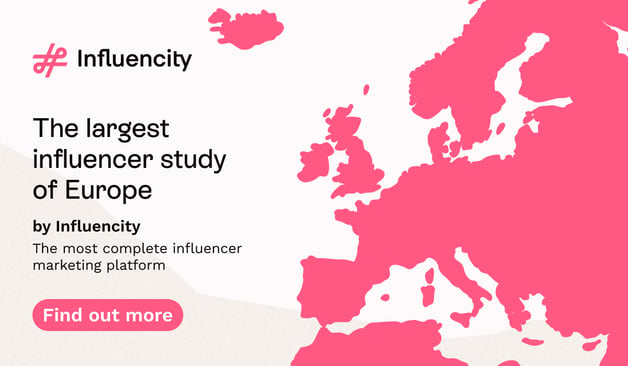




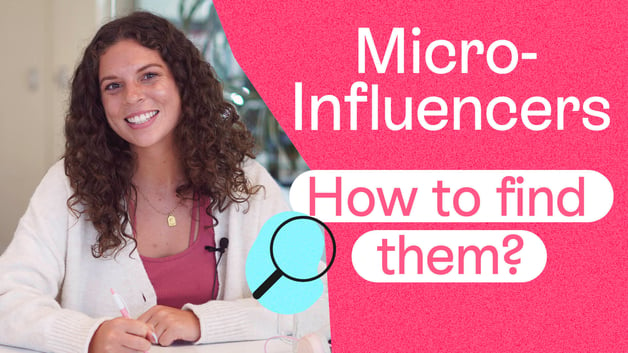




%20and%20How%20Can%20They%20Benefit%20Your%20Brand%20article.jpg?length=628&name=What%20Are%20Key%20Opinion%20Leaders%20(KOL)%20and%20How%20Can%20They%20Benefit%20Your%20Brand%20article.jpg)
